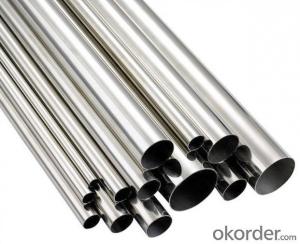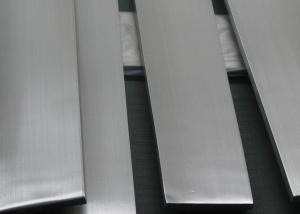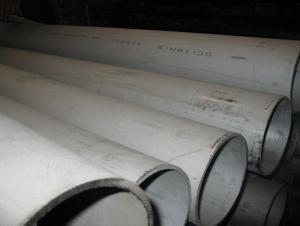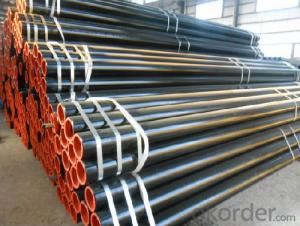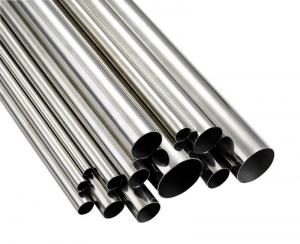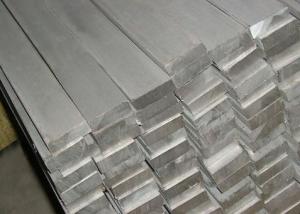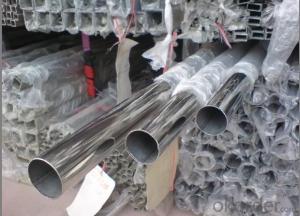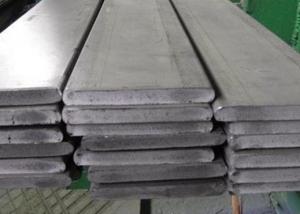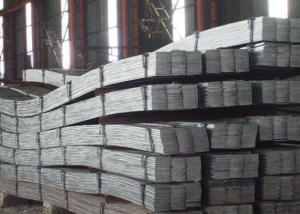Boiler Heat Exchanger Stainless Steel Pipe
- Loading Port:
- Tianjin
- Payment Terms:
- TT or LC
- Min Order Qty:
- 25 m.t.
- Supply Capability:
- 10000 m.t./month
OKorder Service Pledge
OKorder Financial Service
You Might Also Like
Product Description:
1、Structure of Boiler Heat Exchange stainless steel pipe 2507 ASTM A213 Description:
Boiler Heat Exchange stainless steel pipe is often used in the heating system. Heating system, or those stored energy (such as solar energy) in the form of heat, need to be built with the material that can withstand temperatures up to 550 degrees Celsius. High chromium molybdenum welded steel pipe can work in the extreme, which maintain as the ideal material for the construction of power station.
2、Main Features of Boiler Heat Exchange stainless steel pipe 2507 ASTM A213:
• High manufacturing accuracy
• High strength
• Small inertia resistance
• Strong heat dissipation ability
• Good visual effect
•Reasonable price
3、Boiler Heat Exchange stainless steel pipe 2507 ASTM A213 Images:
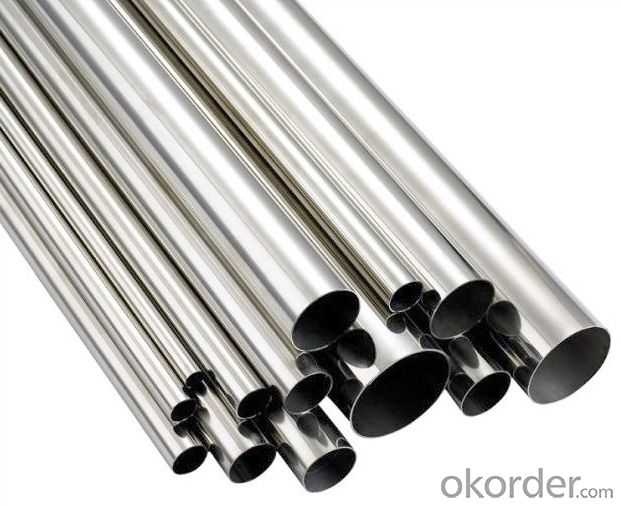
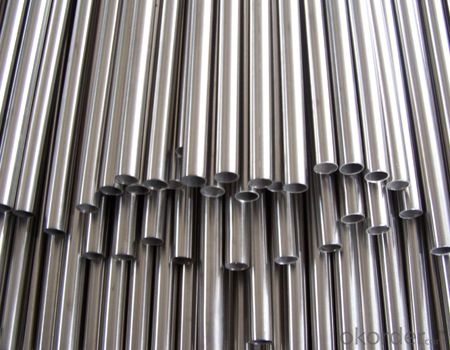
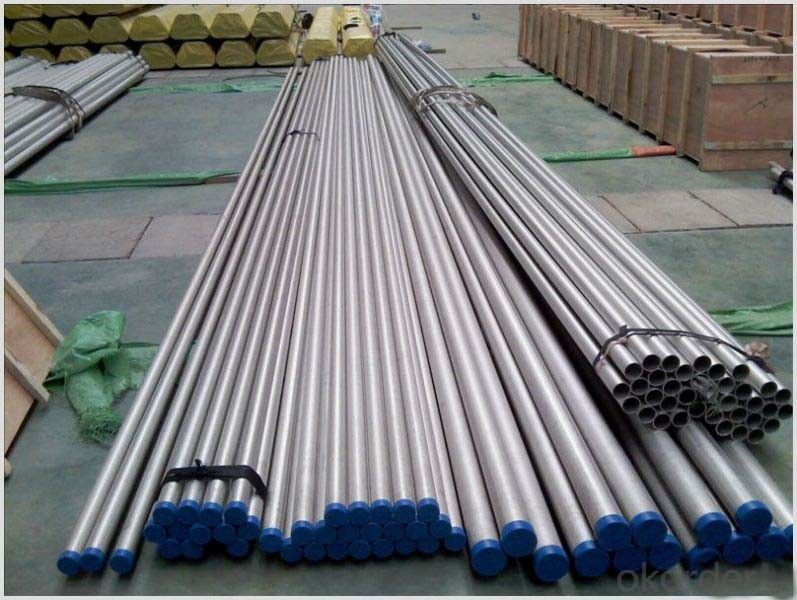
4、Boiler Heat Exchange stainless steel pipe 2507 ASTM A213 Specification:
1)Commodity: heat exchanger pipe
2))Material: 304,316L,304L,316,321,310S,etc
3)Thickness:0.5-100mm
4)Length: 1-14m
5、FAQ of Boiler Heat Exchange stainless steel pipe 2507 ASTM A213:
①How is the quality of your products?
Our products are manufactured strictly according to national and internaional standard, and we take a test on every pipe before delivered out. If you want see our quality certifications and all kinds of testing report, please just ask us for it.
Guaranteed: If products’ quality don’t accord to discription as we give or the promise before you place order, we promise 100% refund.
②How about price?
Yes, we are factory and be able to give you lowest price below market one, and we have a policy that “ for saving time and absolutely honest business attitude, we quote as lowest as possible for any customer, and discount can be given according to quantity”,if you like bargain and factory price is not low enough as you think, just don’t waste your time.Please trust the quotation we would give you, it is professional one.
③Why should you chose us?
Chose happens because of quality, then price, We can give you both.Additionally, we can also offer professional products inquiry, products knowledge train(for agents), smooth goods delivery, exellent customer solution proposals.Our service formula: good quality+good price+good service=customer’s trust
SGS test is available, customer inspection before shipping is welcome, third party inspection is no problem.
Any question, pls feel free to contact us !
- Q:Are stainless steel pipes suitable for desalination plants?
- Yes, stainless steel pipes are highly suitable for desalination plants. Stainless steel is corrosion-resistant and has excellent durability, making it ideal for withstanding the harsh conditions and corrosive nature of the desalination process. Additionally, stainless steel pipes offer good heat transfer properties and maintain the quality of water, ensuring a reliable and efficient desalination process.
- Q:How do you test the quality of stainless steel pipes?
- To test the quality of stainless steel pipes, several methods can be used. 1. Visual Inspection: The first step is to visually inspect the pipes for any visible defects such as cracks, dents, or surface irregularities. This can be done by simply observing the pipes closely and checking for any abnormalities. 2. Dimensional Inspection: The dimensions of the stainless steel pipes should meet the specified requirements. This involves measuring the outer diameter, inner diameter, wall thickness, and length of the pipes using calibrated measuring instruments such as calipers or micrometers. 3. Chemical Composition Analysis: Stainless steel pipes should have a specific chemical composition to ensure corrosion resistance and durability. This can be determined by conducting a chemical composition analysis, which involves using techniques like spectroscopy or wet chemical analysis to check the presence and percentage of different elements in the steel. 4. Mechanical Properties Testing: Mechanical properties such as tensile strength, yield strength, and elongation are crucial indicators of the quality of stainless steel pipes. These properties can be tested through various methods including tensile testing, hardness testing, impact testing, or bending testing. These tests are performed according to relevant industry standards to ensure the pipes meet the required mechanical specifications. 5. Non-destructive Testing: Non-destructive testing methods like ultrasonic testing, X-ray inspection, or electromagnetic testing can be employed to detect any hidden defects or inconsistencies within the stainless steel pipes without causing any damage. These tests are useful in identifying flaws such as cracks, voids, or inclusions that may compromise the quality and performance of the pipes. 6. Corrosion Resistance Testing: Stainless steel pipes are known for their excellent corrosion resistance. To verify their resistance to corrosion, various tests like salt spray testing or exposure to harsh environments can be conducted. These tests simulate real-life conditions to evaluate the pipes' ability to resist corrosion and ensure their long-term durability. It is important to note that the specific testing methods and standards may vary depending on the industry or application requirements. Therefore, it is essential to refer to relevant standards and specifications while conducting quality tests on stainless steel pipes.
- Q:What are the different types of stainless steel pipe coatings?
- There are several types of stainless steel pipe coatings that are used to enhance the durability, corrosion resistance, and aesthetic appearance of the pipes. Some of the common types of stainless steel pipe coatings include: 1. Fusion Bonded Epoxy (FBE) Coating: FBE coating is a thermosetting resin-based coating that is applied to the pipes using an electrostatic spray. It provides excellent corrosion resistance and adhesion, making it suitable for both buried and above-ground applications. 2. Polyethylene (PE) Coating: PE coating is a thermoplastic coating that is applied to the pipes using extrusion. It provides high impact resistance and excellent resistance to chemical substances, making it suitable for pipes used in harsh environments. 3. Polypropylene (PP) Coating: PP coating is a thermoplastic coating similar to PE coating but with higher temperature resistance. It is often used for pipes that transport high-temperature fluids. 4. Polyurethane (PU) Coating: PU coating is a thermosetting resin-based coating that is applied to the pipes using a spray or dip method. It provides excellent resistance to abrasion, impact, and chemicals, making it suitable for pipes used in demanding applications. 5. Zinc Coating: Zinc coating, also known as galvanization, is a metallic coating that is applied to the pipes using a hot-dip process. It provides excellent corrosion resistance and is commonly used for pipes used in outdoor and underground applications. 6. Ceramic Coating: Ceramic coating is a high-temperature resistant coating that is applied to the pipes using a thermal spray process. It provides excellent resistance to abrasion, oxidation, and corrosion, making it suitable for pipes used in high-temperature environments. 7. PTFE (Polytetrafluoroethylene) Coating: PTFE coating is a non-stick coating that is applied to the pipes using a spray or dip method. It provides excellent resistance to chemicals and high temperatures, making it suitable for pipes used in the chemical and food industries. These are just a few examples of the different types of stainless steel pipe coatings available. The choice of coating depends on the specific requirements of the application, such as the type of fluid being transported, the operating temperature and pressure, and the environmental conditions.
- Q:How are stainless steel pipes different from galvanized pipes?
- Stainless steel pipes are different from galvanized pipes in terms of their composition and coating. Stainless steel pipes are made from an alloy of steel and chromium, which gives them excellent resistance to corrosion and rust. On the other hand, galvanized pipes are made from steel coated with a layer of zinc to protect against corrosion. While stainless steel pipes are more durable and long-lasting, galvanized pipes are more affordable and suitable for specific applications where corrosion resistance is not a primary concern.
- Q:How do you calculate the required support spacing for stainless steel pipes?
- To calculate the required support spacing for stainless steel pipes, you need to consider factors such as the pipe material, size, weight, temperature, and the support system used. The most common method is to refer to industry standards and guidelines, such as the American Society of Mechanical Engineers (ASME) B31.1 or B31.3 codes, which provide formulas and charts to determine the appropriate support spacing based on these factors. Additionally, consulting with a structural engineer or piping specialist is recommended to ensure accurate calculations and comply with safety regulations.
- Q:Are stainless steel pipes resistant to scaling and pitting?
- Yes, stainless steel pipes are highly resistant to scaling and pitting due to their inherent corrosion-resistant properties.
- Q:What are the different grades of stainless steel used for pipes?
- Pipes commonly utilize various grades of stainless steel, each possessing unique properties and characteristics. The following are some of the most frequently employed grades: 1. Grade 304: Widely utilized, this stainless steel grade offers exceptional corrosion resistance, high-temperature strength, and satisfactory formability. It finds common use in both indoor and outdoor applications, including water supply pipes, food processing equipment, and architectural structures. 2. Grade 316: Similar to Grade 304, this grade contains a higher molybdenum content, enhancing its resistance to corrosion, particularly against chlorides and other corrosive substances. It is commonly employed in marine environments, chemical processing plants, and medical equipment. 3. Grade 321: This grade contains titanium, which stabilizes it against sensitization during welding or high-temperature exposure. Notably, it exhibits exceptional oxidation resistance and is suitable for applications involving high temperatures, such as exhaust systems and boilers. 4. Grade 409: Due to its outstanding heat resistance and durability, this grade is frequently employed in automotive exhaust systems. Additionally, it demonstrates resistance to corrosion caused by road salts and other harsh chemicals. 5. Grade 347: Similar to Grade 321, this grade incorporates niobium, providing further stabilization against sensitization. It is commonly utilized in high-temperature applications that necessitate resistance to intergranular corrosion, such as aircraft and jet engine components. These examples merely scratch the surface of the multitude of stainless steel grades utilized in pipe manufacturing. The selection of a specific grade for a given application depends on various factors, including the environment, temperature, corrosion resistance requirements, and necessary mechanical properties.
- Q:How about stainless steel 2520 and 316?
- Their nickel content is different. 2520 contains about 20 nickel, 316 contains about 13 nickel, and contains 2 molybdenum.
- Q:Can stainless steel pipes be insulated for soundproofing?
- Indeed, soundproofing stainless steel pipes is possible. By insulating these pipes, the transmission of noise and vibrations through them can be effectively reduced. Several methods and materials are available for insulating the pipes, including acoustic wraps, foam insulation, and mass-loaded vinyl. These materials are specifically designed to absorb or obstruct sound waves, preventing their propagation along the pipes and into the surrounding area. Adequately insulating stainless steel pipes can greatly enhance soundproofing in residential, commercial, or industrial environments, making them a viable and efficient solution for noise reduction.
- Q:What is sanitary stainless steel pipe?
- Surface finish: the pipe inside and outside surface polishing treatment, the pipe surface is bright; it is a mirror. We often say is mainly to prevent the tube away the fluid material formed within the tube wall, a long time is easy to pollute and formed pipe plug.
1. Manufacturer Overview |
|
|---|---|
| Location | |
| Year Established | |
| Annual Output Value | |
| Main Markets | |
| Company Certifications | |
2. Manufacturer Certificates |
|
|---|---|
| a) Certification Name | |
| Range | |
| Reference | |
| Validity Period | |
3. Manufacturer Capability |
|
|---|---|
| a)Trade Capacity | |
| Nearest Port | |
| Export Percentage | |
| No.of Employees in Trade Department | |
| Language Spoken: | |
| b)Factory Information | |
| Factory Size: | |
| No. of Production Lines | |
| Contract Manufacturing | |
| Product Price Range | |
Send your message to us
Boiler Heat Exchanger Stainless Steel Pipe
- Loading Port:
- Tianjin
- Payment Terms:
- TT or LC
- Min Order Qty:
- 25 m.t.
- Supply Capability:
- 10000 m.t./month
OKorder Service Pledge
OKorder Financial Service
Similar products
New products
Hot products
Hot Searches
Related keywords
